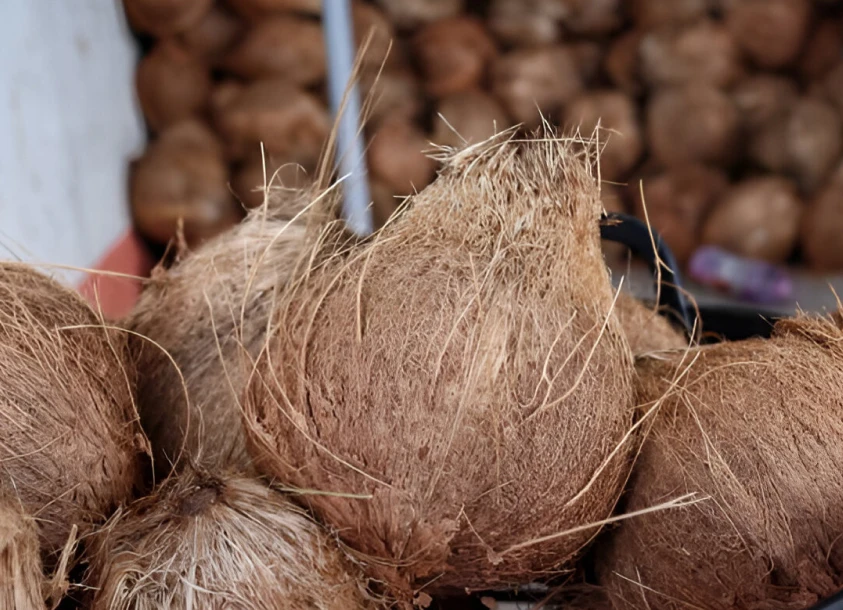India’s Competitive Edge in Semi-Husked Coconut Exports
India’s Competitive Edge in Semi-Husked Coconut Exports India’s Competitive Edge in Semi-Husked Coconut Exports India has emerged as a global leader in semi-husked coconut exports, driven by its tropical geography, strong farming ecosystem, and established export networks. These coconuts, prized for their long shelf life and international usability, have helped India become a trusted supplier for markets across the Middle East, Southeast Asia, and Europe. With standardized grading, moisture testing, and flexible packaging options, Indian exporters ensure every shipment meets global trade expectations. Their ability to scale for high-volume orders while maintaining consistency has positioned India as the preferred source for buyers seeking reliability and quality in the semi-husked coconut trade. Why Semi-Husked Coconuts Are the Preferred Export Format Semi-husked coconuts are a top choice among importers for several practical reasons. By retaining a portion of the outer husk, these coconuts are better protected during long-distance shipping. This design also helps maintain internal moisture, reducing spoilage even during humid or variable transit conditions. These coconuts are widely used for religious rituals, culinary applications, and processing into oil, copra, and desiccated coconut. Indian exporters cater to all these requirements with consistency in quality and variety. The country’s high-volume production capacity and export experience further boost its reputation among global bulk buyers. Major Production Zones for Semi-Husked Coconut Exports India’s southern region dominates the coconut export supply chain: Tamil Nadu is one of the leading producers of semi-husked coconuts, offering year-round availability due to its consistent climate and irrigation Kerala continues its legacy in coconut farming, offering mature coconuts with high oil and water content. Karnataka supports the supply chain with large plantations and semi-organized farmer clusters. These states are not only agriculturally rich but also strategically located close to export ports like Chennai, Cochin, and New Mangalore, enabling faster turnaround times for large orders. Grading and Quality Assurance Before Export One of the reasons why Indian coconut exporters have built global trust is their meticulous grading and quality assurance practices. Before reaching the port, coconuts undergo a detailed coconut grading process at both the farm and warehouse levels. Each batch is sorted by size, shell thickness, and maturity. Exporters use manual checks and digital moisture meters to ensure that only export-grade coconuts move forward. Export compliance also includes phytosanitary inspections and certifications such as APEDA and FSSAI. These steps are vital in ensuring uniformity, longer coconut shelf life, and a zero-defect export track record. Packaging and Port Handling for Global Shipments The proximity of coconut sourcing in Tamil Nadu and other production zones to key ports allows for faster dispatch and lower inland transport costs. Packaging and port logistics are crucial to maintaining product quality during international transportation: Packaging materials for coconuts include gunny bags, HDPE sacks, and ventilated cartons that allow airflow. Coconuts are palletized and stacked securely to prevent breakage during shipping. Moisture-controlled containers are used for long-distance routes to maintain freshness. Indian exporters often operate under CIF terms, offering bulk coconut supply with inclusive pricing and minimal buyer-side coordination. Global Markets That Prefer Indian Semi-Husked Coconuts India’s dominance in semi-husked coconut for export is evident across several international markets. Gulf countries such as the UAE, Oman, and Saudi Arabia have a consistent demand for coconuts for both commercial and cultural use. In Europe and Southeast Asia, semi-husked coconuts are valued for their stability and use in both food processing and wellness industries. Buyers in these markets prefer sourcing from coconut exporters in India due to consistent quality, fair pricing, and on-time shipments. The flexibility of packaging, grading, and delivery volumes also makes India a versatile and dependable trade partner. India’s Long-Term Advantage in Semi-Husked Coconut Exports India’s strength in this segment is not just about volume but about sustained capability. Exporters collaborate closely with farmer cooperatives to ensure supply traceability. Many have also adopted mechanized grading, integrated storage systems, and real-time shipment tracking. Additionally, support from government schemes and export councils has helped exporters adopt export-grade packaging standards and modernize infrastructure. These developments position India as a future-proof player in the international coconut supply chain, able to meet rising demand while maintaining rigorous quality standards. Why Global Buyers Trust Indian Semi-Husked Coconut Exports With a unique mix of farming expertise, strong logistics, and compliance with international quality standards, India holds a competitive edge in the semi-husked coconut export market. From sourcing and grading to packaging and delivery, the Indian supply chain is built for reliability and scale. For global buyers looking for freshness, consistency, and value, India continues to be the most preferred source of semi-husked coconuts worldwide. Latest Post Our Social Media Lorem ipsum dolor sit amet consectetur. Lorem ipsum dolor sit amet consectetur. Consequat vulputate convallis eget mollis viverra nunc mi egestas. Risus facilisi nullam donec.
